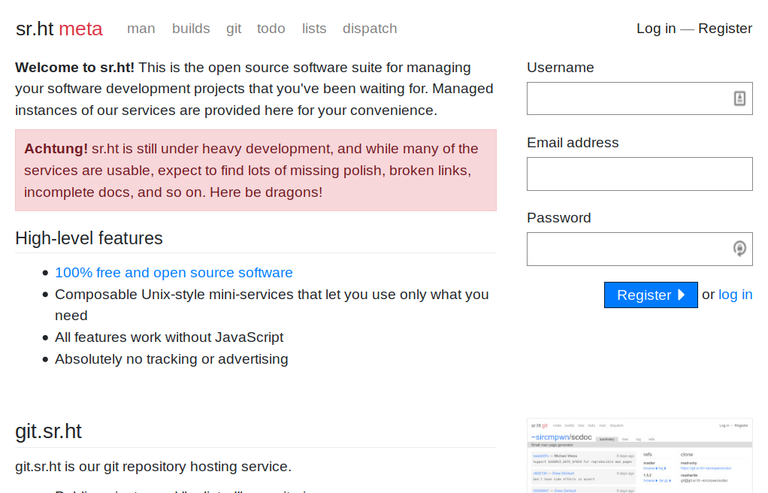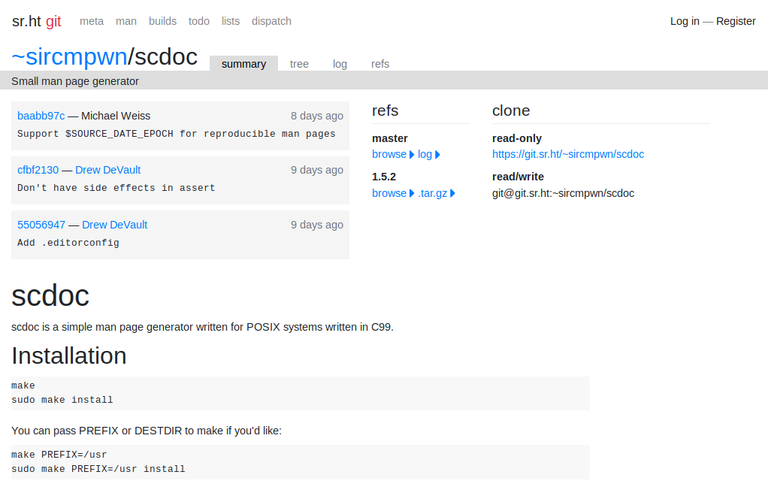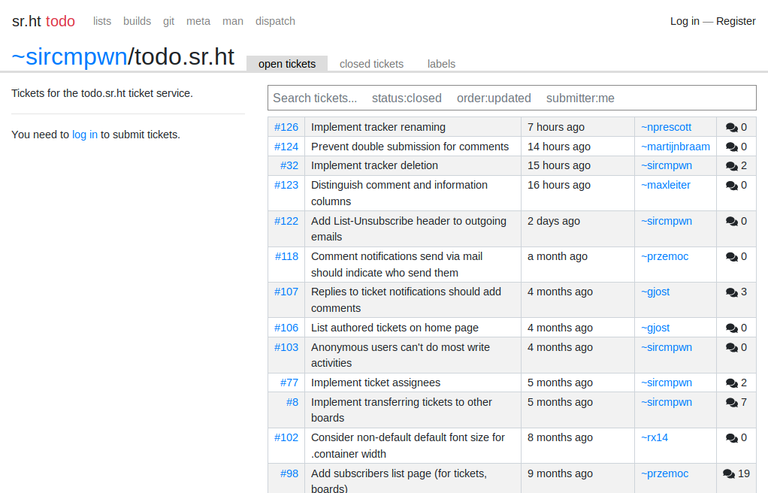sr.ht is a so called software forge, a suite of applications for software developers to deal with source code management, issue tracking, continuous integration, mailing lists and so on. It was created by Drew DeVault, also known by his online username SirCmpwn, who yesterday announced the public alpha release on his blog with a detailed description of the project.

Being a software forge means sr.ht is not just an Open Source alternative to Github (and Gitlab, which still has some proprietary parts according to the sr.ht developer), but also to things like Travis-CI and your favorite mailing list software. It's a complete package for everything you need to manage a software project, but it's also completely modular in the best Unix tradition (do one thing and do it well), so you can use each piece separate from each other and for example keep using Github for source code management but use sr.ht's continuous integration which its developer claims is "easily the most capable continuous integration system available today".
He goes on to say: "It’s so powerful that I’ve been working with multiple Linux distributions on bringing them onboard because it’s the only platform which can scale to the automation needs of an entire Linux distribution."


The design of sr.ht is nothing to write home about, but that's the appeal for a lot of developers judging by the comments on Hacker News and other programming communities where the announcement of sr.ht is among the most popular submissions right now. The minimalist design means sr.ht page loads are on average under 10 KB and it works completely without JavaScript, which some developers still have a huge aversion too. Sometimes even for valid reasons :)

While Github users have become comfortable with the "Pull request" workflow, sr.ht's git workflow uses patches sent by email, the way git was meant to be used. It does make that easier by integrating email deeply into the different services that make up sr.ht.
![Screenshot_2018-11-16 [PATCH mrsh] Store and expand positional arguments — sr ht lists.png](https://images.hive.blog/768x0/https://cdn.steemitimages.com/DQmb92hubHQV7HxAu5kSWmhELn9jfaoxhUuRm1p8t1UwHY9/Screenshot_2018-11-16%20[PATCH%20mrsh]%20Store%20and%20expand%20positional%20arguments%20%E2%80%94%20sr%20ht%20lists.png)
sr.ht can be hosted by yourself on your own server, or you can use the hosted version at sr.ht. The hosted version has free accounts that can do everything while it's in alpha, but past the alpha free accounts will only be able to interact with existing projects, they cannot make their own, so there basically will be no free plans. There are different priced paid plans, but they all offer the exact same features, so it's a "pay what you want" model, you are asked to give as much as you can invest.
People can also receive credit on their account to use the service for free by contributing to the development of sr.ht, which is written in Python using the Flask framework.
And if all else fails, if you just cannot pay for it, the sr.ht maintainer asks you to write an email, explain your situation, and you'll get a free account subsidized by paying users.
This business model will be very interesting to some, because "free" does usually mean you still pay, just not with money. You might pay with your privacy for example, so especially in the developer community you regularly see people preferring to pay for the services they use so that they don't become the product themselves.
we love coding

Reply !stop to disable the comment. Thanks!Hello! Your post has been resteemed and upvoted by @ilovecoding because ! Keep up good work! Consider upvoting this comment to support the @ilovecoding and increase your future rewards! ^_^ Steem On!